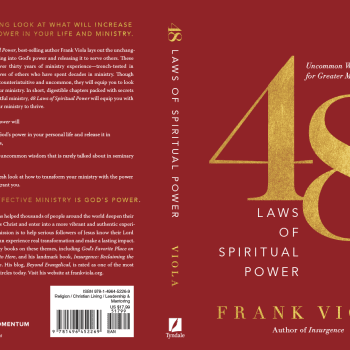The power to tax involves the power to destroy. ~ Chief Justice John Marshall, 1819
Without exception, each of the seven candidates in the recent Fox News debate vowed that they would reject any deficit-reduction proposal that provided a 10-to-1 ratio in spending cuts to revenue (tax) increases. With entitlement programs (Medicare, Medicaid, and Social Security) now claiming over 50 percent of the entire federal budget, any notion that these programs will indefinitely function in much the same manner as today borders on prevarication. Not a single question during the debate that evening referenced entitlements, and the nation is left to speculate when the United States will no longer be able to afford the ever-growing monetary disbursements of the modern welfare state.
The rejection by the candidates of this tax to spending ratio stoked the flames of the perennial debate over the proper role of government and its authority to tax its citizens. Nearly a century ago, the Sixteenth Amendment to the Constitution (1913) empowered the federal government to legally redistribute wealth under a law code touted at the time as just and fair. The amendment accomplished this goal through direct taxation on income.
Proponents of the income tax defined justice in terms of forced compliance that would level society and create social equality. Opponents of the income tax saw it as theft by statute—a confiscation of wages earned through hard work. Both sides understood an incontrovertible truth: the power to tax carries with it a defining influence, for good or ill, on society. To impose a tax on the wages of workers—rich or poor—was a new level of intrusion that had only been temporarily employed thus far in U.S. history for national emergencies such as the Civil War.
The recent arrest of C. Welton Gaddy, president of the Interfaith Alliance, a rabbi, and ten other religious leaders from the United Methodist Church, Church of the Brethren, the Presbyterian Church (U.S.A.), and the United Church of Christ during the recent Congressional debt-ceiling debate further codified the modern theological vision of the rising Christian Left for American tax policy. Their vision equated taxpayer-funded entitlement programs as the appropriate (and even spiritually proper) vehicle for caring for the poor and elderly. Imploring political leaders to "grow up," listen to the "wisdom of the ages" (the Bible?), and forego any substantial changes or cuts to government programs revealed the ultimate issue as a choice between a moral duty and the abandonment of the nation's most needy citizens. The only moral answer in the matrix of their social contract? Maintain the nation's entitlement programs at any cost. For them, it was a matter of justice.
A conundrum, however, surrounds the definition and use of the words "justice" and "virtue" as applied to taxation. Both words are laden with political and moral-religious meaning. The public definition of these words becomes a critical issue for the future economy of the United States. Careful attention should be given to the genesis of any public policy, and taxation is no exception. While competing interests work to dictate the definition of a just tax, past differences form the present debate.
The framers of the Constitution (especially James Madison, the chief architect of such ideas) crafted principles for a moral fiscal code. Prohibiting direct taxation of income blocked off many blind alleys of escape for those who might later seek to use the law as a means for private gain at public expense. With the passage of the Sixteenth Amendment, however, an inevitable expansion of government has taken place, and with it, a certain shaping of the nation's soul. Government is now seen more as a savior and less as a servant. The federal bureaucracy is so large and the tax code so complicated that even the likes of Albert Einstein once declared, "the hardest thing in the world to understand is the federal income tax."
Taxes, when viewed under Holy Scripture's guidance, are also laden with moral significance. Ecclesiastes (4:1) gives notice that power is often on the side of oppressors who arbitrarily use coercive tactics to legitimize vice. The Hebrews were forbidden (Lev. 19:15) from perverting justice by showing partiality or favoritism. Jesus denounced the religious establishment (Mt. 21:12-13; Mk. 11:12-17) for what was clearly an unjust use of power both to tax and influence behavior through discriminatory practices. Among the first evidences of Zacchaeus's conversion was his willingness to return money obtained through excessive taxation (Lk. 19:1-8).





